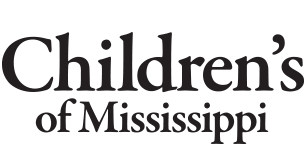I Want To
Contact Us
- For appointments by phone: (601) 984-2700 (Option 1)
- Make an Appointment
Children's Cancer and Blood Disorders
- Children's Cancer and Blood Disorders Home
- Bone Cancer
- Bone Marrow Transplant
- Brain and Central Nervous System (CNS) Cancer
- Germ Cell Tumors
- Hepatoblastoma
- Hodgkin's Lymphoma
- Langerhans Cell Histiocytosis
- Leukemia
- Neuroblastoma
- Non-Hodgkin's Lymphoma (NHL)
- Retinoblastoma
- Soft Tissue Cancer
- Wilms Tumor
- Children's Cancer Support Programs
Children's Retinoblastoma
This cancer of the eye usually occurs in children 5 years old and younger. Some types of this cancer are hereditary. Most are not. This cancer starts in your child’s retina, the nerve tissue that coats the back of their eye. Light reflected on this nerve tissue creates images which are sent along the optic nerve to the brain.
Retinoblasts, the immature cells of the retina, start multiplying before your child is born and continue in his early months. They make enough cells to create your child’s retina. For most children, when they’ve made enough retina cells, they stop dividing and multiplying. For the one in 20,000 who has retinoblastoma, the cells keep dividing and multiplying.
Can my child survive retinoblastoma?
The short answer is “yes.” The numbers are on his side. Statistically, more than 90 percent of children survive five years or longer. Since this cancer tends to strike young children, most are 2 or younger, doctors may find it on a well-baby exam. Not a lot of children are affected by this cancer. About 300 children are diagnosed with retinoblastoma annually in the United States.
Families should know that statistics will not drive the outcome for their child. Each person is different, so statistics cannot determine an individual’s outcome. Your doctors will talk to you about your child’s specific type of retinoblastoma and other health conditions that may affect the outcome. At Children's Cancer Center, where research already has led to longer survival, doctors are searching for more and more ways for your child to defeat cancer.
Your child's cancer care team
Pediatric cancer specialists here work with children who have retinoblastoma. They work with a large group of other doctors, specialists and support personnel to help your child recover. Others on this team include nurse practitioners, pediatric ophthalmologists, pathologists, radiologists, transfusion medicine specialists, psychologists, radiation oncologists, and nurses with experience in blood and lymphatic disorders, medical technologists, counselors, child life specialists, teachers, dietitians and social workers.
Team members meet every week to discuss your child’s case, their progress and any new treatments or techniques that may help them. All are focused on helping your child and your family succeed against cancer. You will meet many members of your child’s team, but may never see others.
What we do
Your child’s care team at the Children's Cancer Center is part of Children’s of Mississippi and UMMC Cancer Center and Research Institute. It specializes in treating childhood cancers. In fact, this is the only place in the state you can receive some treatments. Doctors also can offer your child the opportunity to enroll in clinical trials which test new treatments for many cancers.
Our specialists will take into consideration the type of cancer he has, how advanced it is and other conditions he may have in making recommendations for their treatment. Your child’s doctors also teach the state’s next generation of caregivers and do research on new ways to earlier diagnose cancers and to treat them. They have to know the latest ways to detect, diagnose and treat cancers and use that knowledge every day to treat the state’s children.



 UMMC
UMMC